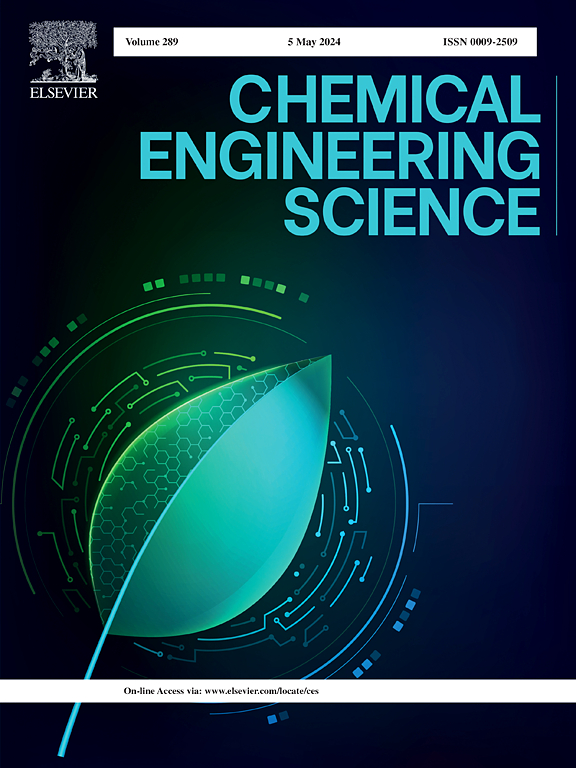An effective strategy for degrading waste PET plastic into regenerated DMT with nearly equivalent methanol at relatively low temperature
IF 4.1
2区 工程技术
Q2 ENGINEERING, CHEMICAL
引用次数: 0
Abstract
The increase in the usage of polyethylene terephthalate (PET) leads to the generation of a large amount of waste, which may cause carbon emissions and waste of petroleum resources. The methanolysis method has attracted global attention, but limited by high reaction temperature and excessive use of methanol. We report here an efficient catalyst, tetramethylguanidine/1,5-diazabicyclo[4.3.0]-5-non-ene (TMG/DBN), converting waste PET into regenerated dimethyl terephthalate (rDMT) under 100 °C with almost equivalent methanol, achieving 100 % PET conversion and 93.1 % yield of rDMT. A series of analytical methods and theoretical calculations were used to reveal the enhanced interaction between the catalyst and reactants, which facilitates the degradation of PET at low methanol dosages. In addition, a kinetic model was also developed with a relatively low activation energy of 84.9 kJ/mol. This work provides an effective strategy for the up-grading recycling of waste PET under mild reaction conditions.

在相对较低的温度下,用接近等量的甲醇将废弃PET塑料降解为再生DMT的有效策略
聚乙烯对苯二甲酸乙二醇酯(PET)使用量的增加导致大量废物的产生,可能造成碳排放和石油资源的浪费。甲醇分解法受到了全球的关注,但受到反应温度高和甲醇使用过量的限制。我们在这里报道了一种高效的催化剂,四甲基胍/1,5-重氮比环[4.3.0]-5-非烯(TMG/DBN),在100 °C下用几乎相同的甲醇将废弃PET转化为再生对苯二甲酸二甲酯(rDMT), PET转化率为100% %,rDMT收率为93.1 %。通过一系列的分析方法和理论计算,揭示了催化剂与反应物之间的相互作用增强,从而促进了低甲醇用量下PET的降解。此外,还建立了活化能为84.9 kJ/mol的较低的动力学模型。本研究为在温和反应条件下提高废PET的资源化利用提供了有效的策略。
本文章由计算机程序翻译,如有差异,请以英文原文为准。
求助全文
约1分钟内获得全文
求助全文
来源期刊

Chemical Engineering Science
工程技术-工程:化工
CiteScore
7.50
自引率
8.50%
发文量
1025
审稿时长
50 days
期刊介绍:
Chemical engineering enables the transformation of natural resources and energy into useful products for society. It draws on and applies natural sciences, mathematics and economics, and has developed fundamental engineering science that underpins the discipline.
Chemical Engineering Science (CES) has been publishing papers on the fundamentals of chemical engineering since 1951. CES is the platform where the most significant advances in the discipline have ever since been published. Chemical Engineering Science has accompanied and sustained chemical engineering through its development into the vibrant and broad scientific discipline it is today.
 求助内容:
求助内容: 应助结果提醒方式:
应助结果提醒方式:


